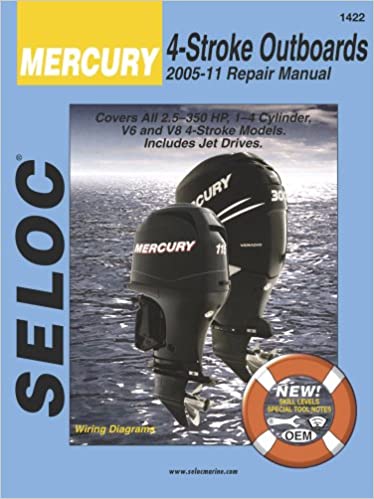John Hill, a member of the PartsVu community, offers some excellent advice for boaters looking to begin working on their boats but may not be sure of where to start.
So, you’re new to wrenching and are thinking about tackling some of your boat’s winterization projects this fall, or maybe you want to change your lower unit gear oil before your next day trip. That's great! Working on your boat can be a cost-effective way to knock out some maintenance tasks and save some money in the process. It’s also incredibly rewarding to complete a project right and have the satisfaction of doing it with your own hands.
If you don't have a lot of experience wrenching on boats, that's okay. All you need is a little initiative and patience, and soon you'll be on your way to building your wrenching skills and checking off some of those maintenance projects.

Before starting your project, it’s a good idea to consult some resources. Consulting resources gives you a good idea of what you need for your project and what’s involved. Resources can help guide you through your project's processes and requirements because there is nothing worse than starting a project but unable to finish it because you don't have the correct tools, parts, fluids, or components. Don’t let this happen to you—consult useful resources, discover what you need, and learn what to expect from the project.
The fact that you are reading this blog indicates that you already have the skills to build necessary wrenching resources. There are some great resources right here, like bundled maintenance packages that include all the parts you need to winterize your boat or rebuild your water pump. Maintenance kits make things easy by including everything you need rather than trying to find all the components on your own.
Another great resource is the exploded schematic diagrams for most motors and sub-assemblies. These diagrams are helpful in demonstrating the orientation and sequences of parts in assemblies. It's an at-a-glance view of how everything fits together. They are great for identifying parts and part numbers, or when you take something apart and aren't sure how it goes back together.
Search for Instructional Videos
I’m sure you already knew it, but YouTube and the internet at large are great places to look for resource information about your wrenching project. Watching a video can do a lot to familiarize yourself with the processes and procedures involved in your project. Seeing someone else doing the project can go a long way in alleviating any reservations you might have. If you can’t find a video for a process on your exact engine model, look for the same engine brand, as, for the most part, maintenance and mechanical processes are similar across most brands. As a bonus, many people who make these videos are clever and witty so you can pick up a lot of valuable tips and maybe get a laugh as well.
Troubleshooting and More Complex Projects

As you build your wrenching skills and confidence, you will move beyond routine maintenance and into troubleshooting and more complicated procedures. While there may be some great videos available to get you started, there is not always a guarantee you will find precisely what you are looking for. Its times like this when there is no substitute for a good repair manual for your specific outboard motor.
Repair manuals are an invaluable resource for information about your outboard engine. These manuals include detailed general maintenance schedules and procedures, specifications for lubricants, tolerances and torque settings; troubleshooting guides; wiring diagrams, and detailed repair procedures. As a bonus, some I have read are quite humorous in their description. They also offer guidance to DIY mechanics outlining if specialty tools are required.
Manuals also designate the complexity of procedures to match your skill level to the task you are looking to undertake. Get one for the troubleshooting guide alone, and you'll save your day on the water just by knowing where all the fuses are located and what component they serve. There is a ton of valuable information in these manuals; even if you only ever plan on doing routine maintenance, consider picking one up as the information is consolidated and unmatched by videos on the internet.
Tap the Boating Community
The last wrenching resource I'll suggest is people. Boaters are some of the best people out there, and most are willing to share their experience and knowledge with you if you ask. If you know that your neighbor at the dock wrenches on his boat, talk to them about the project you are planning or see what they are working on. It’s a great way to learn about wrenching and also have someone you can consult if you get into trouble on your own. If you don’t have access to someone like this, there are many boat owners' forums on the web. Hunt around and find a forum that aligns with your boating interests, research your projects in their search engines, post about your wrenching projects, and ask for help. You are sure to get an answer.
By utilizing and consulting a broad range of resources, you can make you next wrenching project a success. Don’t be intimidated to get out there and consult some resources to get the information and knowledge you need. Then get wrenching! You can do it!













